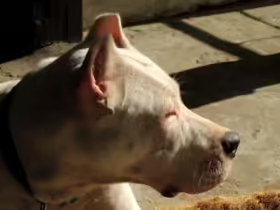Dogs are more than just pets—they are loyal companions and members of the family. Whether you are a new dog owner or have years of experience, providing the best care for your dog is essential for their happiness and well-being. In this comprehensive guide, we’ll cover everything you need to know about dog care, including training tips, nutritional guidance, grooming advice, and health care tailored to every breed.
1. Choosing the Right Dog for Your Lifestyle
Before diving into dog care, it’s important to choose the right breed for your lifestyle. Different breeds have varying energy levels, size, grooming needs, and temperaments.
- Active Lifestyles: If you enjoy outdoor activities like hiking or running, breeds such as Border Collies, Labradors, or Australian Shepherds are a great fit.
- Laid-Back Lifestyles: For a more relaxed environment, breeds like Bulldogs, Basset Hounds, or Shih Tzus might suit you better.
- Apartment Living: Small breeds like Chihuahuas, Pugs, and Dachshunds are ideal for compact spaces.
Taking the time to research and understand the breed’s specific needs ensures a better match and a happy dog.
2. Basic Dog Care Essentials
All dogs, regardless of breed, require essential care to maintain their health and well-being. Here’s a breakdown of the fundamental aspects of dog care:
2.1. Feeding and Nutrition
Proper nutrition is the cornerstone of your dog’s health. The nutritional requirements of dogs vary by age, size, and activity level.
- Puppies: Require more calories and protein to support their rapid growth. High-quality puppy food is designed to meet these needs.
- Adults: Adult dogs need balanced meals with appropriate portions of protein, fats, and carbohydrates.
- Seniors: As dogs age, their metabolism slows down. Senior dog food is formulated to support joint health and maintain a healthy weight.
Portion Control: Overfeeding can lead to obesity, which increases the risk of health issues like diabetes, arthritis, and heart disease. Always follow feeding guidelines based on your dog’s size and activity level.
Water: Keep fresh water available at all times. Dehydration can lead to serious health complications.
2.2. Grooming and Coat Care
Regular grooming keeps your dog’s coat healthy and reduces shedding. The grooming needs of dogs vary depending on their breed and coat type.
- Short-haired Breeds: Require less frequent brushing but benefit from occasional grooming to remove dead hair.
- Long-haired Breeds: Need regular brushing (2-3 times a week) to prevent mats and tangles.
- Bathing: Dogs should be bathed every 4-6 weeks, depending on their lifestyle. Overbathing can strip the coat of natural oils, leading to dry skin.
Nail Trimming: Long nails can cause discomfort and lead to walking problems. Trim your dog’s nails every 3-4 weeks or as needed.
Ear Cleaning: Regularly check and clean your dog’s ears to prevent infections, especially for breeds with floppy ears like Cocker Spaniels.
3. Training Your Dog: Building a Strong Bond
Training is an essential part of dog care, helping to establish good behavior and strengthen the bond between you and your dog. Positive reinforcement is the most effective training method.
3.1. Basic Commands
Start with essential commands like:
- Sit: Helps calm your dog in various situations.
- Stay: Teaches your dog to remain in place until given another command.
- Come: Critical for off-leash play and safety.
- Heel: Ensures your dog walks calmly beside you during walks.
3.2. Potty Training
Potty training requires consistency and patience. Designate a specific area for your dog to relieve themselves and reward them when they use it. Puppies may need to be taken outside every 1-2 hours, while older dogs can hold it longer.
3.3. Socialization
Early socialization helps dogs become comfortable with other animals, people, and new environments. Introduce your dog to different settings, sounds, and experiences gradually to avoid fear or anxiety.
3.4. Leash Training
Leash training is critical for walks. Teach your dog not to pull by using a loose leash method and rewarding them when they stay close. Consistency is key to avoiding leash-reactive behavior.
4. Nutrition: Feeding for Optimal Health
A well-balanced diet supports your dog’s immune system, energy levels, and overall health. Here’s what to consider for optimal nutrition:
4.1. Types of Dog Food
- Dry Kibble: Convenient and helps keep teeth clean.
- Wet Food: More flavorful but can be higher in calories.
- Raw Food: Advocates claim raw diets provide more natural nutrition, but it requires careful preparation to avoid health risks.
- Grain-Free Diets: Some owners prefer grain-free food, but always consult your vet as it may not be necessary for all dogs.
4.2. Nutritional Requirements
Dogs need:
- Protein: Essential for muscle development and maintenance.
- Fats: Provide energy and support skin and coat health.
- Carbohydrates: A source of energy, though some dogs do well on low-carb diets.
- Vitamins and Minerals: Essential for bone health, immune function, and metabolism.
4.3. Treats and Supplements
- Treats: Use sparingly to avoid weight gain. Choose healthy treats, such as small pieces of vegetables or specially formulated dog treats.
- Supplements: Omega-3 for joint health and glucosamine for older dogs can be beneficial. Always consult your vet before adding supplements to your dog’s diet.
5. Exercise and Mental Stimulation
Dogs of all breeds need regular exercise to stay fit, both physically and mentally. The type and amount of exercise required depend on the breed, age, and health of the dog.
5.1. Physical Exercise
- High-Energy Breeds: Dogs like Border Collies, Huskies, and Labradors need at least 1-2 hours of vigorous exercise daily.
- Moderate-Energy Breeds: Dogs like Beagles and Bulldogs benefit from 30-60 minutes of moderate exercise.
- Low-Energy Breeds: Short walks or play sessions suffice for smaller breeds like Pugs or Shih Tzus.
5.2. Mental Stimulation
Boredom can lead to destructive behavior. Keep your dog mentally stimulated with:
- Puzzle Toys: These engage your dog’s problem-solving skills.
- Training Games: Practice obedience training or teach new tricks.
- Social Interaction: Playdates with other dogs or interaction with family members provide valuable social engagement.
6. Health Care: Preventive Measures and Veterinary Visits
Regular veterinary care is crucial for ensuring your dog stays healthy. Preventive care includes vaccinations, routine check-ups, and treatments for common issues.
6.1. Regular Vet Visits
- Puppies: Need a series of vaccinations and deworming treatments.
- Adults: Require annual check-ups, vaccinations, and dental cleanings.
- Seniors: More frequent vet visits to monitor aging-related issues, such as arthritis or vision loss.
6.2. Vaccinations and Parasite Control
- Vaccinations: Essential to protect against diseases like rabies, parvovirus, and distemper.
- Flea and Tick Prevention: Use flea and tick preventatives year-round, especially in warmer climates.
- Heartworm Prevention: Monthly heartworm medication is crucial for preventing this life-threatening disease.
6.3. Spaying and Neutering
Spaying or neutering your dog not only helps control the pet population but also reduces the risk of certain cancers and behavioral issues.
6.4. Dental Health
Regular brushing and dental check-ups are essential to prevent gum disease, tooth loss, and bad breath. Dental chews and toys can also help maintain oral hygiene.
7. Special Care for Different Life Stages
7.1. Puppies
Puppies require constant care, training, and socialization during the first few months. They need puppy-specific food, vaccinations, and more frequent vet visits.
7.2. Adult Dogs
Once your dog reaches adulthood, the focus should be on maintaining their health through a balanced diet, regular exercise, and routine vet care.
7.3. Senior Dogs
As dogs age, they may require adjustments to their diet, more frequent vet visits, and supplements to support joint and cognitive health. Keep an eye on their mobility and weight.
Conclusion
Caring for your dog is a lifelong commitment that involves proper nutrition, training, exercise, grooming, and health care. Each dog, regardless of breed, deserves love and attention to ensure they live a happy, healthy life. By following this comprehensive guide, you’ll be equipped to provide the best care for your dog, no matter their breed or life stage.











Leave a Reply